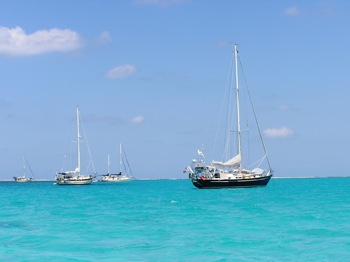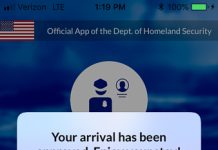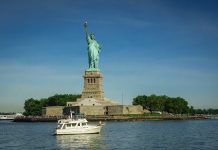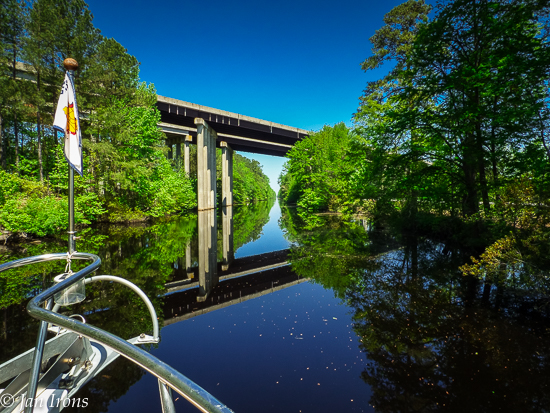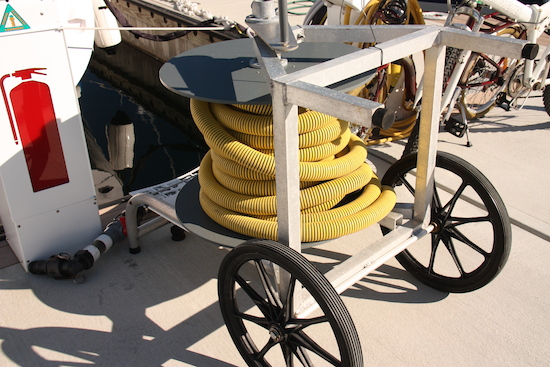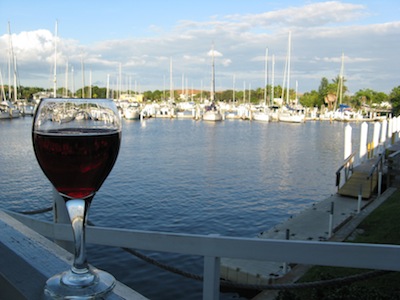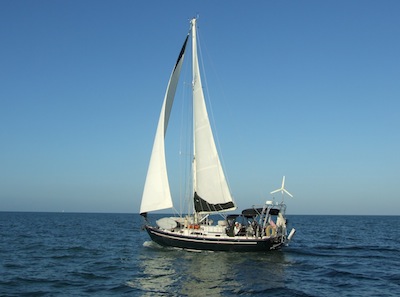Cruising in remote areas, especially heading from the easternmost Bay Island of Guanaja to the Vivorillos Cays off the far eastern edge of Honduras, around the corner to two Columbian Islands off the coast of Nicaragua and finally on to Panama, is much safer with more than one boat, not only in anchorages but underway. While underway from the Vivorillos, our four buddy boats planned to take the “outside” route … there are two deepwater channels off the Nicaraguan coast, one passing within about 10 miles of the mainland where reportedly “drug drop” vessels are abandoned waiting for someone to pick them up … we don’t want to be ANYWHERE near that area!
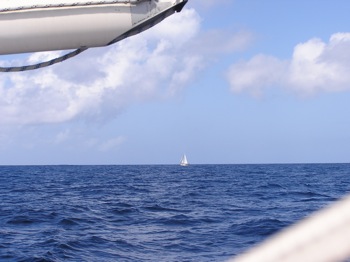
The outside route adds miles but also some distance between us and the most active drug trafficking areas. We also chose to transit the area at night, no lights and no VHF radio chatter. The designated hour arrived and four boats lift anchor for the two day passage in reverse order of when we arrived. We used radar to stay close together, preferably within a mile, in the most dangerous area without having to use the VHF. One further precaution, we all left our SSB radios on channel 6209 and set up 6 PM and midnight SSB checkins with friends still in the Bay Islands. Locals don’t usually have SSB radios, but we plan to keep talk at an absolute minimum just in case. Normally we don’t leave the SSB on and radar running all the time due to power drain while we’re under sail.
Just before sunset, a large two deck fishing boat shadowed our buddyboat, Bruadair for over 2 miles before turning directly at his bowsprit at full speed. Breaking VHF silence, David on Bruadair called me on VHF 16. When I answered right away, the fishing boat passed close behind his transom, sharply diverted course and sped toward Winterlude. A moment later, they changed their minds and turned back the way they came. We all believe the fishing boat didn’t realize in the dusk that there were two boats within a mile of each other. When the voices on the VHF alerted them to the fact, they changed whatever they were planning. Keep in mind we were a bit paranoid so it could be the fishing vessel was simply curious and didn’t mean any harm.
Local knowledge via the SSB, Northwest Caribbean Net had reported within the past year, several boats were approached by vessels without lights on this stretch, ranging from dark US Coast Guard & US Navy ships refusing to respond to radio hails to local fishing craft. The offshore route limits the number of local craft simply by being 60 miles offshore. Still one cruising sailboat last year was circled for hours before finally deciding to attempt to ram the fishing vessel which quickly departed.
Later that same evening, we heard Coast Guard hailing a boat on VHF16 … in English, which means it can only be the US Coast Guard. Since VHF range is only 10-20 miles, it was reassuring to hear their voices. If we did have a problem, there was obviously a friendly vessel relatively close. Of course, it also meant if we had been approached by a dark ship in the middle of the night that refused radio contact & just shadowed us like stealth, it could also be them… reassuring & scary all at the same time.
Especially on longer passages or in remote locations, try to have more than one boat!
